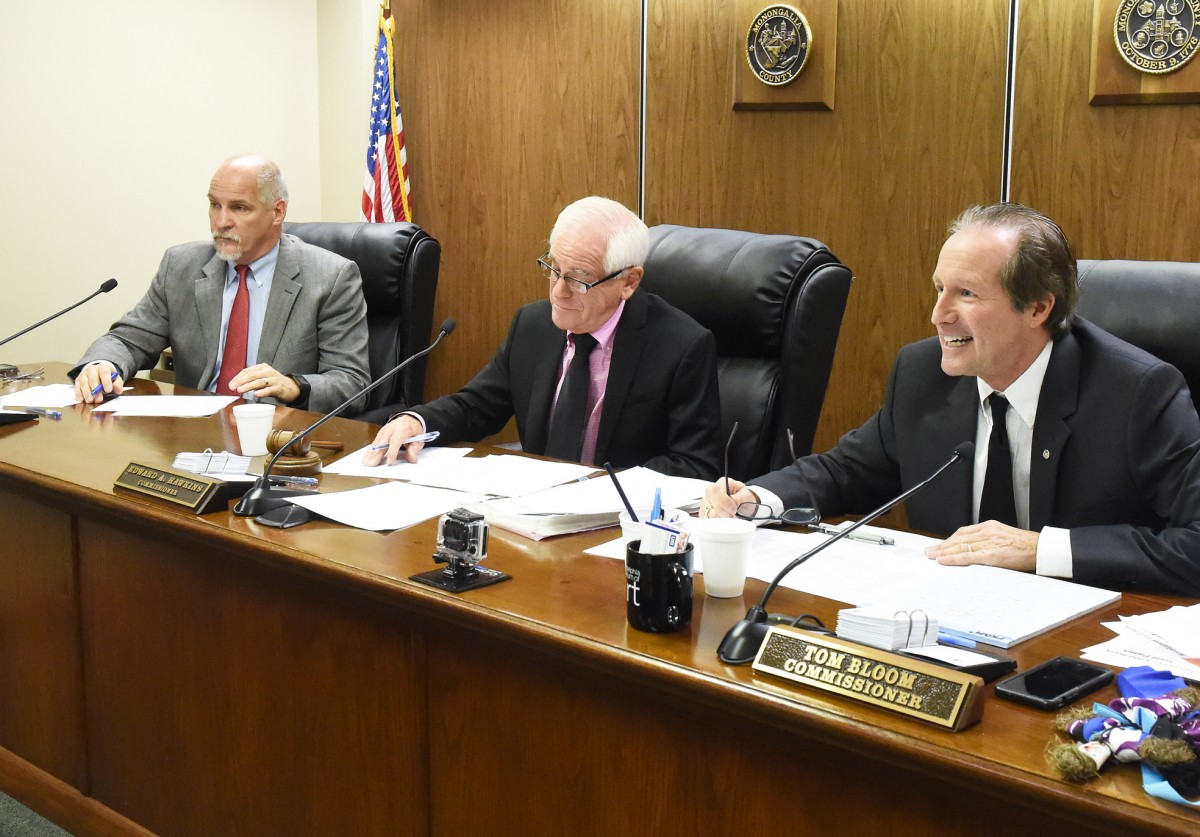MORGANTOWN — They are satisfied with the answers from the State Tax Office and said it’s time to move forward.
Monongalia County Commissioners finally heard an explanation from the State Tax Office — something they’ve been seeking for more than a year — on why Monongalia County didn’t receive so much as a single penny in tax remittance on wine and liquor tax during the final quarter of 2013 and first quarter of 2014.
“In the absence of conversation, all we had was the numbers,” Commissioner Sean Sikora said Thursday on WAJR’s Morgantown AM. “It’s our duty to our citizens to make sure that we are making sure we we’re getting our proper allotment of tax dollars.”
Commissioners began plowing ahead with inquiries in August 2017, after discovering “missing” tax dollars. That led to a 16-month battle to acquire information, which turned out to be a difficult process as noted by virtually every commissioner.
At one time, then-Commission President Ed Hawkins said he couldn’t rule out the possibility of a lawsuit — if that’s what it took — to acquire the correct information and potentially refund the county for lost revenues.
As it turns out, there were a number of mistakes involved, but the glaring $0.00 on the spread sheets wasn’t the error — it was a result of correcting other mistakes.
According to Commission President Tom Bloom, there were significant errors that required a number of audits in multiple counties in 2012. Without giving specific information on private businesses, the Tax Office was able to show Monongalia County commissioners some municipalities were essentially shorted on tax dollars — and that needed to be corrected.
“Businesses were impro-perly classified, and the county — small ‘c’ — received taxes that should have gone to a city,” Sikora said.
One of the more complex aspects that led to this accounting mess surrounded the geographic classification of businesses — where being up to one mile outside of a municipality’s limits entitled certain municipalities to tax dollars. That law was rewritten during the 2018 regular legislative session in Charleston.
A bipartisan committee substitute for SB 275 passed 30-3 in the West Virginia Senate and 94-3 in the House earlier this year, effectively eliminating the confusion over the one-mile radius by eliminating that language.
“When they showed us, if everything was reported correctly, how the money would have been distributed and kind of how it leveled out — that blip was really the leveling out of these issues,” Sikora said. “We were satisfied with that explanation.”
County alcohol revenues are projected to increase in the next fiscal year.
“We have better ideas, better projections,” Sikora said. “Just from a county — small ‘c’ — perspective — we expect with all the vendors being correctly assigned to their localities, that the tax department projects an increase from nine to 16 percent.”
Twitter @wvradiospiel




